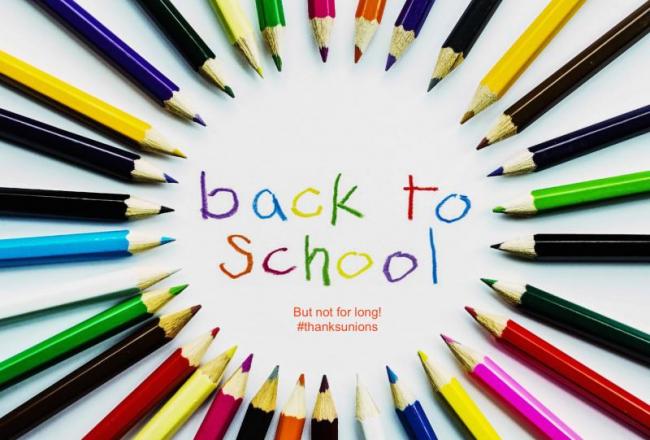Chicago Teachers Union Fails Students

How Strikes Hurt Our Kids
By Olivia Grady
The planned Chicago Teachers Union (CTU) strike for October 11, 2016, thankfully was called off with a last minute tentative agreement with the Chicago Board of Education on October 10.
What did this avoid?
Almost 400,000 children being baby-sat by individuals who aren’t teachers for possibly weeks.
These children are not privileged children whose parents could afford tutors at home during this time. These children are mostly (over 86 percent) from “economically disadvantaged” homes, and most of them also are African Americans and Hispanics.
They are the children stuck in poorly performing public schools who have few other opportunities. And the Teachers Union knows this and takes advantage of it.
How did this happen?
In June 2015, the most recent contract between the CTU and the Board expired.
Following months of failed contract negotiations, the union held an election in late September 2016 on whether to strike. Over ninety percent of CTU members voted in the election, and over ninety-five percent voted for it.
Then, at its September 28th House of Delegates meeting, CTU leadership passed a resolution authorizing the strike.
Thus, on September 29, 2016, the Chicago Teachers Union (CTU) announced its intention to strike on October 11 if a new contract with the Board hadn’t been reached.
The Board and the union were fighting over the compensation of teachers, specifically whether the Board should continue to pay seven percent of teachers’ required pension contributions. The teachers currently pay two percent. This change would save the district about $130 million annually, certainly a help for a district with a $480 million budget shortfall.
In January, the Board and the union leadership had agreed to this cut in pensions if the teachers’ base salary was raised 8.75% over four years and a cap was placed on privately operated charter schools. However, the union’s forty member bargaining team rejected it because of the change in the pension.
In its latest negotiations this fall, the union asked for no cuts to benefits, job security guarantees, and a $200 million increase in spending. It also wanted the surpluses on the tax-increment financing districts (TIFs) to go to the schools to pay for smaller class sizes and social workers and librarians in every school.
Chicago is the third largest school district with almost 400,000 students and over 20,000 teachers. It spent over $16,000 per student in 2015 and pays its teachers a median salary of $76,000. In addition, the National Assessment of Educational Progress (NAEP) showed that only thirty percent of fourth grade students were proficient in math in 2015. English scores in fourth grade and Math and English scores in eighth grade were even lower.
What happened with the strike?
In an attempt to persuade the Mayor, protests at Mayor Rahm Emanuel’s home were held on October 10. According to a local Fox channel: “At one point, protesters chanted, ‘Mayor Emanuel, we're no fools. If there's money for developers, there's money for schools.’”
And, just before midnight on October 10, the CTU announced a tentative contract agreement with the Board. The CTU’s House of Delegates and membership still needs to vote on this agreement, but will be persuaded to by the union.
According to the tentative contract, the government will still pay the seven percent of the pension for current teachers, but not for new teachers. However, there will be base salary increases for these new teachers. Also, all teachers will receive a cost of living adjustment in 2018 and 2019. In addition, more teacher assistants will be assigned to large classes, and there will be an increase in funding. The entire agreement can be found here.
There is another option for these kids though: school choice. School choice allows all parents to choose where they want to send their children to school. There are programs that allow parents to choose a different public school, a charter school, and even a private school (Illinois has a very small tax credit program, but it needs to be expanded). These programs improve the quality of all schools and give more opportunities to the children.
For too long, the teachers unions have determined the success of our kids. It’s time to put that control back where it belongs: in the hands of parents.





